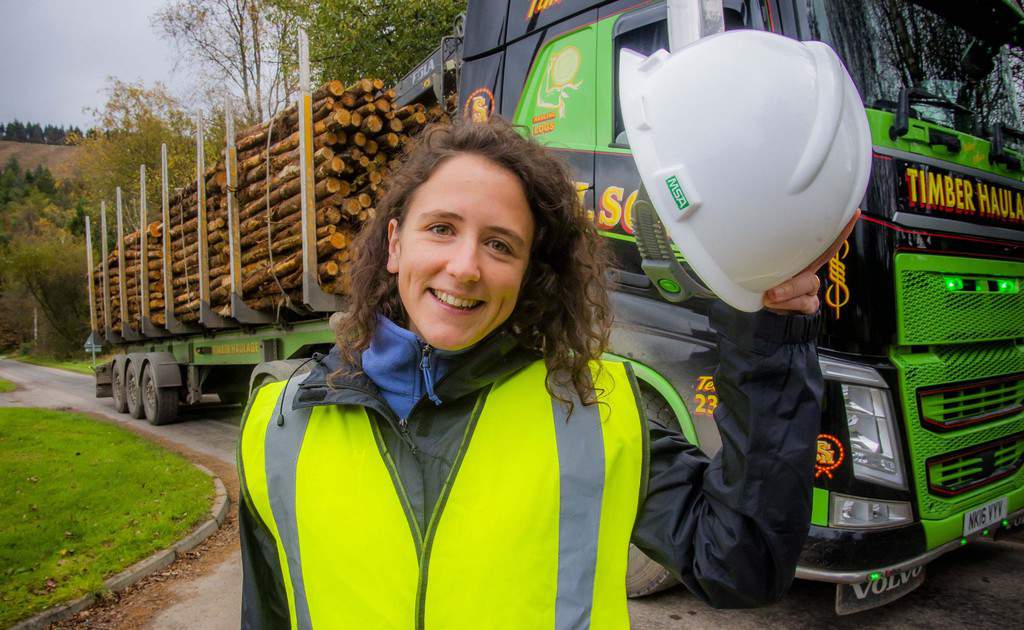Over £7 million of Scottish Government funding is set to increase the levels of community, social and environmental benefit gained from projects that minimise the impact of timber lorries on Scotland’s rural road network including an investment of £455,000 for improvements on the B796, on the U300a and A709-A75(T) in Dumfries and Galloway.
The 2018 Strategic Timber Transport Fund (STTF), managed by Forestry Commission Scotland, has awarded over £7 million of co-finance to projects which will improve a number of largely minor rural roads throughout Scotland or take lorries off the road with the timber being transported to market by sea.
Announcing the funding as part of the agreed Scottish budget for 2018-19, Minister for Rural Affairs and the Natural Environment, Mairi Gougeon, said;
“Scotland’s burgeoning £1 billion forestry industry produces 7 million tonnes of timber every year – a quantity of high quality raw material that is set to increase in coming years.
“This timber will greatly benefit our rural economy but we must also do all we can to mitigate the impact on local communities of increased timber traffic on minor rural roads. The Timber Transport Fund is there to support projects that do just that.
“This year’s awards go to local authorities and forest owners that have come forward with project ideas that will facilitate the sustainable transport of timber and ultimately benefit local communities and the environment.”
As well as providing these wider community benefits required under the scheme, the funding also delivers benefits to the timber processing sector.
Amongst the projects awarded £6.3 million of support are road, bridge and junction improvements that allow timber lorries to use those routes more safely.
Just over £1 million of funding has also been awarded to support the TimberLINK shipping service and the creation of landing craft loading areas that give access by sea to timber which is growing at the end of very fragile rural roads.
Roland Stiven of the Confederation of Forest Industries said;
“This funding is greatly needed to improve our rural roads to suit modern land uses such as forestry. Work on minor roads such as those at Laverhay in Dumfries and Galloway and Bunachton near Daviot in the Highlands, strengthen the road surface, widen corners and provide passing places so that timber lorries can share the road with local residents and business while the harvesting programme is underway.
“The Scheme is also supporting work to improve the freight capacity of busy rural A roads such as the A714, vital for shifting sustainably grown timber from Galloway forests to the timber processing and manufacturing facilities in Ayrshire.”
The projects supported not only ensure the continuing steady stream of quality timber to processors across the country but also reduce the number of road miles required to transport timber to market.
Welcoming the Scottish Government funding, David Sulman, Executive Director of the UK Forest Products Association and Chair of the Assessment Panel of the Strategic Timber Transport Scheme, said;
“The award of funding to these strategically important projects will make a real difference for the sector, as well as providing valuable community, social and environmental benefits.
“Thanks to continued Government support for the Scheme, a wide range of projects have been co-financed, with particular benefits for Scotland’s rural economy.”
The funding also supports the work of five project officers who engage with both Local Authorities and forestry stakeholders to identify any local timber transport issues and seek to identify potential solutions.
All projects are required to meet the Strategic Timber Transport Scheme funding criteria.
Some additional projects are still under consideration with further awards anticipated.





